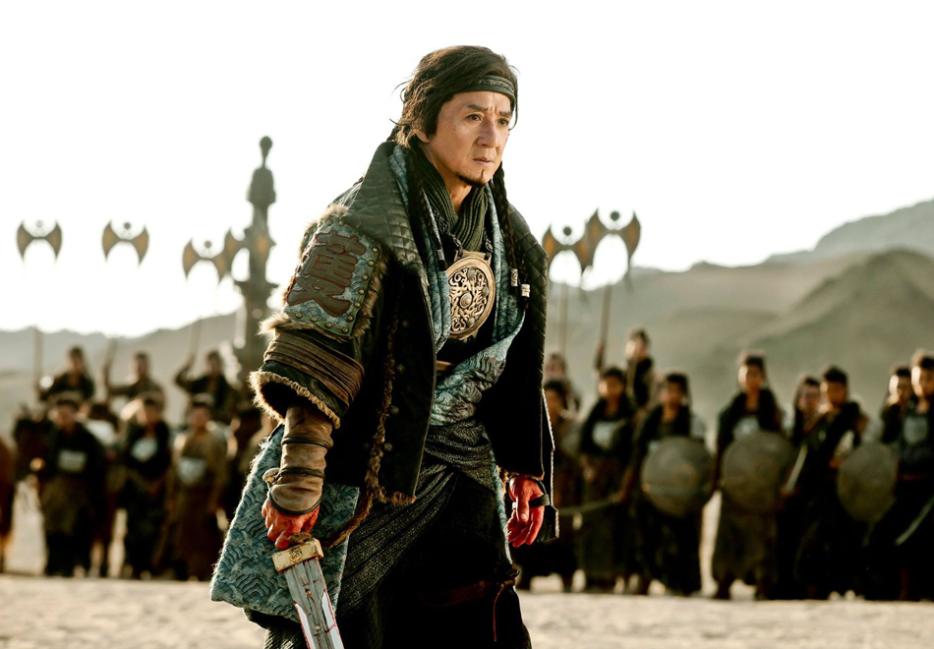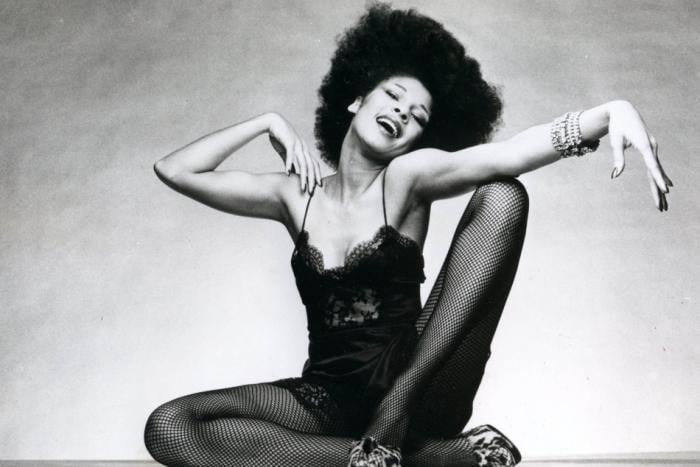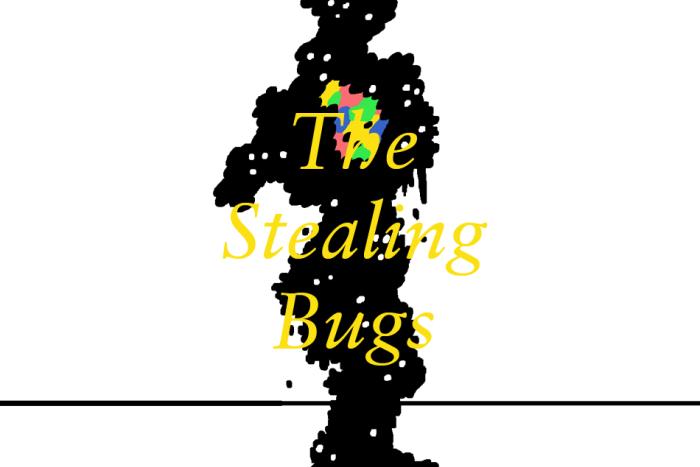For 156 years, Hong Kong’s national identity was its lack of national identity. A Chinese port seized by the British with virtually no indigenous population before the mid-19th century, its population grew largely from immigrants fleeing unrest in the Mainland. But if it’s possible for a nationless state to have a crisis of self, that’s what Hong Kong faced July 1, 1997, when the city was reunified with the People’s Republic of China. Though the terms of the handover promised a “one country, two systems” agreement, without any changes to Hong Kong’s political, legal, or economic structures for a period of 50 years, many of Hong Kong’s residents opted to move abroad rather than risk life under Communist Party sovereignty. Those who stayed faced uncertainty: What would the influence of China—a largely agrarian economy with a poor record on free speech and human rights—be on one of Asia’s most important cultural and economic centres?
One who expressed little concern ahead of time was Hong Kong’s longest-reigning and most internationally famous celebrity. “I’m not political,” said Jackie Chan in a 1996 interview with Inside Kung Fu magazine. “Even if the Chinese government interviews me, I’ll say I don’t like Communists. But I know I’m Chinese. I love China. But I don’t like politics. I’m just a filmmaker. I just make my films. But in my films there are no politics.”
In an interview with the same magazine in 1998, however, Chan was unusually outspoken. “I hope China becomes big. Like in America, they say, ‘I’m proud to be an American.’ One day, I hope there will be the same sense of pride when a Chinese person says, ‘I’m proud to be Chinese.’” When asked about critics of the government, he said:
“I tell them, ‘You suppose you’re Chinese after you immigrate to Canada? You have a Canadian passport and now you’re coming back saying, ‘Down with China! We don’t like China!’ You’re making a problem for those of us who stayed! You went away. Let our Chinese resolve our problems. You’re not Chinese anymore. You’re Canadian.’ That’s what I’m saying. I hate those kinds of people.”
In September 2012, I saw Chan participate in an onstage interview about his life and career at the Toronto International Film Festival. He was there to promote his upcoming film Chinese Zodiac, in which he was to play a treasure-hunting adventurer who repatriates stolen antiques. He brought up the auctions at which plundered Chinese artifacts have netted millions for American and European auctioneers. “Everybody knows in Paris, in the U.S., in London, there are so many treasures from other countries. I think right now, we’re talking about one world—one world, now it’s so close. Why don’t we just give back everything?”
The audience, which applauded practically everything Chan had said up to that point, fell oddly silent during this digression. It’s difficult to articulate the energy that swept through the room. It wasn’t quite disapproval so much as uncertainty: a sense that this wasn’t quite what we’d signed on for.
Since the handover of Hong Kong, Jackie Chan's relationship with China has been mutually beneficial. In China, he’s amassed wealth and fame at an unimaginable scale: Forbes recently ranked him as the world’s second-highest-paid actor ($50 million between June 2014 and June 2015), behind only Robert Downey Jr. Where a particularly successful Chan movie from the ’80s or ’90s might have grossed US$7 million at the Hong Kong box office, his recent Mainland production, the aforementioned Chinese Zodiac, grossed US$145 million in China. The movies are just part of his Beijing-based business empire: his holdings include hotels, restaurants, a cinema chain, a Segway dealership, and innumerable endorsement deals.
In Chan, China has gained its most internationally recognizable public figure as a cultural ambassador. He performed at the 2008 Beijing Olympic Games, and recently recorded a song to support the city’s 2022 bid. He serves on the Chinese People’s Political Consultative Conference, a top political advisory board. He has publicly supported the government’s policy of capital punishment for drug offenses, and has criticized pro-democracy protests in Hong Kong and Taiwan. He visits film festivals around the world as a representative of China’s booming film industry, and as a filmmaker, he has starred in, produced, and directed a string of PRC-friendly super-productions. Chan’s recent films, including 1911, Chinese Zodiac, and Dragon Blade (opening in North America today), have made him more than just a movie star: he has become the Chinese film industry’s most prominent political artist.
*
As a lowly stuntman in Hong Kong, Jackie Chan’s proudest moment came when Bruce Lee kicked him through a wall in 1972’s Fist of Fury. In 1976, in his first film as a leading man, Chan attempted nothing less than to fill Lee’s shoes in New Fist of Fury. There was little doubt which position suited him better. After a few years struggling in Lee’s shadow, Chan broke out in 1978 with a pair of kung-fu comedies—Snake in the Eagle’s Shadow and Drunken Master—that undercut the solemnity of the genre. As he articulated in a 1995 interview with The New Yorker, “When Bruce Lee kick high, I kick low. When Bruce Lee punch, he is the superhero; when I punch, ahh! It hurts.”
Chan’s golden era lasted roughly from 1978 to 1994—years in which his patented mix of broad slapstick and eye-popping stunts earned him regular comparisons to Buster Keaton. Chan’s best years coincided with a period of unprecedented commercial and artistic success for the Hong Kong film industry: the macho melodramas of John Woo; the special-effects spectaculars of Tsui Hark; the absurd comedies of Stephen Chow; and the dreamy, sensuous romances of Wong Kar-wai. These and other filmmakers briefly made the colonial port city the world’s third largest film industry.
“I’m not sure if it is good to have freedom or not," Chan said. "I’m really confused now. If you are too free, you are like the way Hong Kong is now. It’s very chaotic. Taiwan is also chaotic. I’m gradually beginning to feel that we Chinese need to be controlled. If we are not being controlled, we’ll just do what we want.”
From these heights, the industry faced a sudden collapse in the mid-’90s. Many factors contributed: piracy, a recession in Asia, competing entertainment options, an aging talent pool, declining exports to Asian territories, and intense competition from the United States. In 1993 and 1994, the top-grossing films at the Hong Kong box office were American (Jurassic Park and Speed), and by 1997, local films accounted for less than 50 percent of the market share.
It didn’t help that the handover had many leading figures of Hong Kong cinema looking west. After several failed attempts, Chan finally made an impact on the American market with the successful 1996 release of Rumble in the Bronxand 1998’s massively popular Rush Hour. The celebrated director John Woo also became a Hollywood player with Broken Arrow and Face/Off. Their precedent, the advocacy of cinephiles like Quentin Tarantino, and the success of Crouching Tiger, Hidden Dragon and The Matrix led to a late ’90s/early ’00s vogue for Hong Kong action. Many of the city’s key stars (Jet Li, Sammo Hung, Michelle Yeoh, Chow Yun-fat) and directors (Tsui Hark, Ringo Lam, Stanley Tong) attempted Hollywood careers, with varying degrees of success.
By the mid-2000s, however, Hollywood’s demand for their talents had mostly dried up. Chan’s U.S. career proved similarly unsustainable: the blockbuster Rush Hour 2 was followed by the rapidly diminishing box office returns of The Tuxedo, Around the World in 80 Days, and the Hong Kong/American coproduction The Medallion. Even at Chan’s level of fame, how many good Hollywood roles were going to be available for a middle-aged Chinese action star?
As Hong Kong’s film industry declined, China’s emerged. After years of declining cinema attendance, the government introduced a quota system to allow a controlled number of successful American films to play in Chinese theatres. These hits kept theatres in business and brought in revenue to make Chinese films. In 1998, several state film companies were combined into the powerful, vertically integrated China Film Group, and partnerships with American companies such as Miramax allowed for bigger, better productions.
Zhang Yimou’s 2002 film Hero was a turning point. A political allegory (Jet Li sacrifices himself for the good of the nation) wrapped in handsome, star-studded spectacle, it was a distinctly Chinese movie that could also compete with American blockbusters on their own terms. The Chinese film industry’s renaissance has coincided with the growth of China’s urban middle-class, for which moviegoing is a popular pastime. Today, China is the second-largest box office market in the world, and the China Film Group has been a funding partner on American films such as The Dark Knight Rises and Furious 7.
Following his Hollywood sojourn, Chan produced and starred in four Hong Kong films between 2004 and 2009. All were moderate box office successes, but off-screen image problems dented Chan’s box office appeal. In 1999, an extramarital affair became public when Chan fathered a child with a former Miss Asia. He reconciled with his wife, but refused to acknowledge or meet his daughter, and has never fully shaken the scandal. There was also his strained relationship with his son, the actor and singer Jaycee Chan, whom he often disparaged in interviews (tabloid interest in their relationship was renewed in 2014 when Jaycee was arrested for possession of marijuana, for which he was sentenced to six months in prison). There was the 2006 incident in which he disrupted a concert while inebriated, demanding to sing a duet with pop star Jonathan Lee and cursing at the audience.
Most crushing for many of his Hong Kong fans, however, was his growing allegiance to the Mainland and its policies. A tipping point came in 2009, when, speaking at the Boao Economic Forum in China, Chan said:
“I’m not sure if it is good to have freedom or not. I’m really confused now. If you are too free, you are like the way Hong Kong is now. It’s very chaotic. Taiwan is also chaotic. I’m gradually beginning to feel that we Chinese need to be controlled. If we are not being controlled, we’ll just do what we want.”
The comments were met with outrage from Hong Kong pro-democracy groups, who called for a boycott of his film Shinjuku Incident. A 2010 Reader’s Digest poll listed Chan as Hong Kong’s “least-trusted public figure”—below even Donald Tsang, the city’s scandal-plagued, Beijing-appointed Chief Executive. The same year, Chan closed his longtime Hong Kong office and relocated to Beijing. His recent Police Story: Lockdown grossed just US$194,777 in Hong Kong, not even cracking the city’s 100 highest-earning films of 2014.
Chan’s Beijing ties also seem to have ended his professional relationship with Willie Chan (no relation), his manager and closest confidante since the ’70s. By all accounts, their partnership was much deeper than manager/client: Jackie has referred to Willie as “brother,” and reportedly no contract existed between the men. Their relationship cooled, according to Willie in a 2014 interview, when “he became so popular that he lost himself. Fame went to his head.” He added, “There were many high officials sitting at the same table. There were many rich men and ‘Yes’ men. My words fell on deaf ears.”
Chan’s new retinue can be sensed in a 2013 New Yorker profile, “China’s Greatest Warrior Accepts an Award,” which captures Chan on the New York stop of a world tour. In the article, Chan visits a retrospective of his films at Lincoln Centre “for the purpose of spreading Chinese culture.” Backstage is an entourage of Chinese businessmen and politicians (including Sun Guoxing, Consul General of China). “I’ve forgotten how to speak Cantonese!” Chan jokes, referring to the dominant tongue of Hong Kong. “Who speaks Cantonese anymore? No one speaks Cantonese! I don’t even speak Cantonese! I speak Mandarin now.” When asked about Beijing’s pollution, Chan says, “I’m living there now, and I don’t care about all that pollution. The sunshine is absolutely fantastic.”
*
China’s filmmaking renaissance has also led to a revival of the country’s most durable cinematic genre, the historical propaganda film. Chan’s contribution was 2011’s 1911, in which he starred as Huang Xing, the revolutionary leader who, as one of the leaders of the Kuomintang, founded the People’s Republic after centuries of dynastic rule. The film was released in conjunction with the 100th anniversary of the Xinhai Revolution, and as if to emphasize Chan’s patriotism, it was the first film since 1998 on which he received a directing credit. Aside from one short fight scene, it is an inert, relentlessly straight-faced historical drama—half propaganda, half attempt to rebrand its aging star as a dramatic actor. It flopped all around the world. (Chan also briefly appeared in 2009’s The Founding of the Republic, an all-star epic about the rise of Mao. The film was produced by the China Film Group and financed by the Communist Party, with blink-and-you’ll-miss-them appearances by Jet Li, Zhang Ziyi, Andy Lau, Donnie Yen, and John Woo.)
Much more successful was 2012’s Chinese Zodiac (aka CZ12), a globetrotting action-comedy in the vein of Chan’s ’80s/’90s work, sprinkled with some of the most hilariously didactic political commentary ever seen in a commercial film. Once again, Chan is credited as director—and, in fact, earned a Guinness World Record for Most Credits On One Movie (his supposed 15 duties included everything from actor, producer and writer to music and catering), so we can surmise that his was a labour of love.
Though the film's group of relic-hunters is outspoken, it’s not radical: a young American member actually says, “I’d like to remind all of you of the principles of our organization. One, we don’t cause the police any trouble. Two, we don’t interfere with the lives of people. And three, we don’t disturb social order.”
Chinese Zodiac opens with a re-enactment of one of China’s most painful humiliations, the pillaging of Beijing’s Old Summer Palace by French and British troops during the Second Opium War of 1860. We then see a montage of modern auctions at which the zodiac heads have sold: $7,745,000 for the cow head in 2000, $6,800,000 for the pig head in 2003, etcetera. Cut to the present day: Chan stars as “JC,” a mercenary treasure hunter who steals Chinese antiques for a corrupt auction firm. He reports to special guest star Oliver Platt, playing a ruthless auctioneer who specializes in artifacts from the Summer Palace (“They’ll do anything for their own relics, won’t they? Their patriotism equals our profit”). JC’s assignment: find the Palace’s 12 bronze zodiac heads, now scattered in private collections throughout the world.
Posing as a reporter, JC visits a commune of relic-hunters in Paris—a crew of multinational twentysomethings in a clubhouse-like loft. JC discovers there’s a movement towards repatriating stolen antiques, and that it is vibrantly global, grassroots, and youth-led (I swear to you, one character states verbatim, “A common goal among us young people is to retrieve lost relics for various countries”). Though the group is outspoken, it’s not radical: a young American member actually says, “I’d like to remind all of you of the principles of our organization. One, we don’t cause the police any trouble. Two, we don’t interfere with the lives of people. And three, we don’t disturb social order.”
This sort of stilted government-speak reaches its delirious zenith when JC and Coco (a Chinese member of the commune) meet Catherine de Sichel, the young heiress to a crumbling French dynasty. Touring the palatial Sichel estate, Catherine shows off the antiques her great-great-grandfather seized during “a great victory” in 1860—which Coco realizes was the ransacking of the Summer Palace. Coco helps herself to one of them: “Just like over a hundred years ago, your ancestors didn’t ask anyone before taking this painting.” A sort-of Socratic dialogue ensues:
JC: “The killing of the British and French diplomats by the corrupt Qing Dynasty was an excuse to start the war.”
COCO: “And is that a legitimate reason for two industrialized nations to invade an agrarian country?”
SICHEL: “In the eyes of those industrialized nations, China was a superpower.”
JC: “True, we even called ourselves Celestial Kingdom.”
COCO: “Whose side are you on?”
[…]
COCO: “Over a century ago, you came to our country to rape, pillage and murder. Even a hundred years later, these memories still hurt the Chinese.”
SICHEL: “It’s true. I studied history. Whatever the excuses used, these things did indeed happen. Sometimes we can only explain such things with invalid reasons, such as: ‘That was an era in which might makes right.’”
JC: “We cannot use today’s civilized standards to judge the mistakes of the past. Even now, it’s the strong who come out on top. You must have power before others will reason with you.”
SICHEL: “Never mind. I’m beginning to understand her point of view.”11Some of this dialogue was cut for Chinese Zodiac’s North American release version.
The movie takes pains to position artifact repatriation as not exclusively a Chinese concern. In a montage of news broadcasts, we see Indian and Egyptian newscasters lamenting the loss of their own national treasures. Though ineptly handled, these scenes suggest a mix of patriotism and globalism that could have been quite potent. We all love our countries, Chan argues, but we’re also members of the same human family. How important are our differences when we share so many common values?
We can see a less strident variation on this idea in Dragon Blade, in which Chan plays an army commander in Han Dynasty-era China who forms an alliance with a Roman general (an amusingly miscast John Cusack) to fight off another imperialist army (led by a hammy Adrien Brody). With a budget of $65 million (among the highest ever for a Chinese film), a high proportion of English dialogue, and two genuine-if-slightly-past-their-prime American movie stars, it’s Chan’s most ambitious attempt yet at a Chinese blockbuster with global reach.
We saw it, too, when Chan took to social networking site Weibo to chide the 2014 Hong Kong pro-democracy protests for their impact on the economy: “I found out through the news that Hong Kong’s economic losses reached HK$350 billion [$45 billion] and I’m really worried…I believe every Hong Kong resident loves Hong Kong and wishes it well! Hong Kong’s bright tomorrow requires everyone’s support and hard work.”
And we saw it in 2008 when Chan was interviewed by CNN prior to the Beijing Olympics. When Chan was asked about China’s environmental and human rights issues, he countered, “That’s not China’s problem—that’s the whole world’s problem. Look at the pollution in L.A., look at the pollution in Russia, look at the pollution everywhere around the world. … And so many countries have human rights [problems], but now everybody is just against China. No, that’s not fair.” He added, “Let China change. Change cannot be one day.”
*
By coincidence, China’s second most internationally famous political artist—the dissident Ai Weiwei—also used the zodiac heads for inspiration: his “Circle of Animals/Zodiac Heads” public sculpture exhibition was unveiled in 2011 and toured internationally over the next few years (overlapping, in fact, with the release of Chan’s film). In a promotional video, Ai dismissed government outcry over the recent zodiac auctions as mere nationalist chest thumping: “They [the government] never really care about culture. This is the nature of a communist: to destroy the old world, to rebuild a new one. They’re not clear about what is so important in this so-called tradition or classics.” With the exhibition, he sought to question the difference between his “fake” zodiacs and the originals. “I don’t think it’s a national treasure. It has nothing to do with national treasure. It’s designed by Italian and made by French for Qing Dynasty emperor, who actually was somebody who invaded China.”
For his own activist work, notably his efforts to find the names of students killed in the 2009 Sichuan Earthquake, Ai has faced surveillance, imprisonment, and house arrest. Though he designed the famous “Bird’s Nest” Olympic stadium in which Chan performed, he later disowned it, telling press, "I would feel ashamed if I just designed something for glamour or to show some kind of fake image." When asked, Chan has claimed that he’s never heard of Ai.
As artists and public figures, Chan and Ai are both distinctly Chinese, but also globally conscious. They know how to speak directly to the West—one through activism, the other through obfuscation. When pressed further in that CNN interview, Chan simply refused to engage, retreating to an older apolitical stance he’d seemed to have long since abandoned: “I don’t know politics—I just know a lot of people use the good timing to force China’s government, ‘I want to do that, I want this’ … I don’t know who’s right, who’s wrong—that’s a history problem.”
It’s no great achievement to poke holes in Chan’s logic—to point out, for example, that China was also using the Olympics to put forward a political agenda, or that Chan himself has been dismissive of any calls for change from Chinese citizens. But just as soft power can be more effective than force, hazy centrism can bolster the status quo more than ideology. Chan has the potential to be a great propagandist precisely because his vapid platitudes neutralize opposition.






